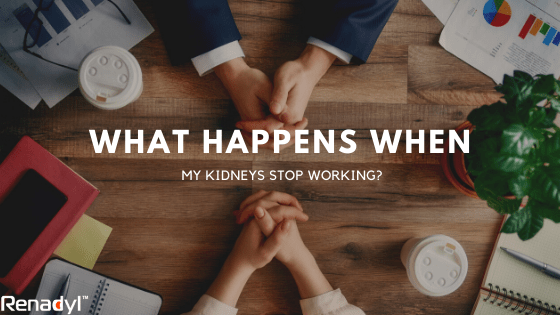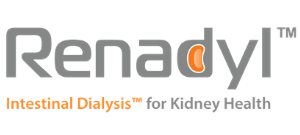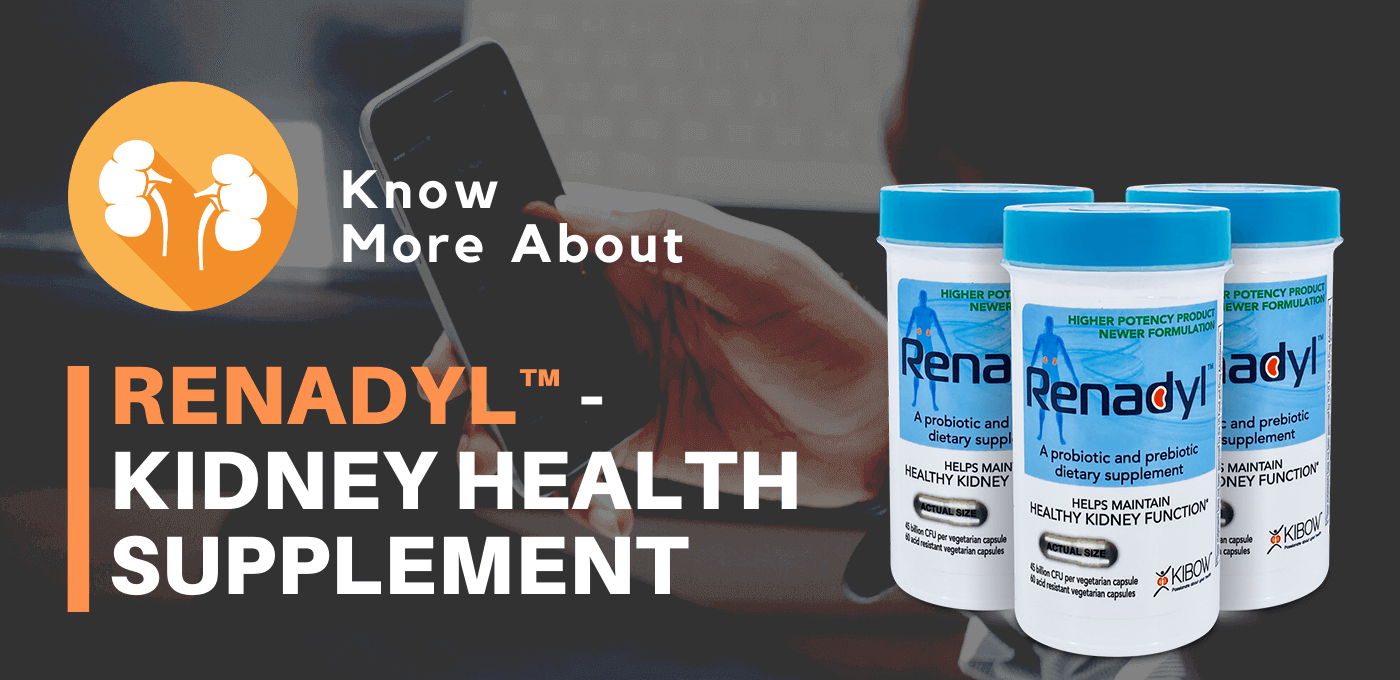What happens when my kidneys stop working?
Article posted in:
Kidney Health

Kidney Function
When the kidneys stop working they can no long filter toxins, excess water and unneeded vitamins/minerals from the bloodstream. Instead of exiting the body in urine, they circulate and cause further damage. (1) As a result, kidneys are also unable to properly regulate blood pressure, activate vitamin D into a usable substance, or communicate with the body to produce red blood cells. (2)
What Causes Kidney Problems?
Kidney problems occur when the kidneys are damaged and continue to worsen as a result of that damage. (3) In the United States, the top two causes of kidney problems are:
- High or blood sugar: Over time, high blood sugar damages the tiny blood vessels in the kidney. This hinders the kidney’s ability to filter the blood, often leading to further damage. (4)
- High blood pressure: High blood pressure also damages the body’s blood vessels. If left untreated, this damage usually extends to the kidneys. In turn, this damage hinders the kidney’s ability to regulate blood pressure leading to even further damage. (5)
What Happens When They Stop Working?

Early Stages
During the early stages, the kidneys are still filtering most of the body’s toxins from the body. There are usually no symptoms during this stage and the eGFR is <90. Even so, doctors may find physical damage to the kidneys or protein in the urine. Both are indicators of early-stage kidney problems. (6)
Middle Stages
The middle stage is broken up into two categories: Stage 3a has an eGFR between 45-50 and Stage 3b has an eGFR between 30 and 44.
Many in stage 3a and 3b do not have symptoms. Those that do, report swelling in the hands/feet, peeing more or less than usual, back pain, high blood pressure, anemia, and bone disease (due to lack of activated vitamin D). (6)
End Stages
As the body operates- think breaking food down and creating muscles- it creates toxins like urea, creatinine, and uric acid. At Stage 4, they are circulating at fairly high amounts and people are now more likely to have the symptoms mentioned above.
Getting tested early and often, especially if you have high blood sugar or pressure, is the best way to know if your kidney function is declining. If caught early enough, kidney problems can be slowed through a combination of diet, medications, supplements, and living a healthy lifestyle.
Works Cited
- What Is Chronic Kidney Disease? (2017, June 1). Retrieved from https://www.niddk.nih.gov/health-information/kidney-disease/chronic-kidney-disease-ckd/what-is-chronic-kidney-disease
- Kidneys. (n.d.). Retrieved from https://www.yourhormones.info/glands/kidneys/
- Kidney Failure (ESRD) Causes, Symptoms, & Treatments. (n.d.). Retrieved from https://www.kidneyfund.org/kidney-disease/kidney-failure/
- Diabetes – A Major Risk Factor for Kidney Disease. (2020, February 10). Retrieved from https://www.kidney.org/atoz/content/diabetes
- High Blood Pressure & Kidney Disease. (2020, March 1). Retrieved from https://www.niddk.nih.gov/health-information/kidney-disease/high-blood-pressure
- Stages of Chronic Kidney Disease (CKD). (n.d.). Retrieved from https://www.kidneyfund.org/kidney-disease/chronic-kidney-disease-ckd/stages-of-chronic-kidney-disease/#stage-1-ckd





Comments
Leave a Comment